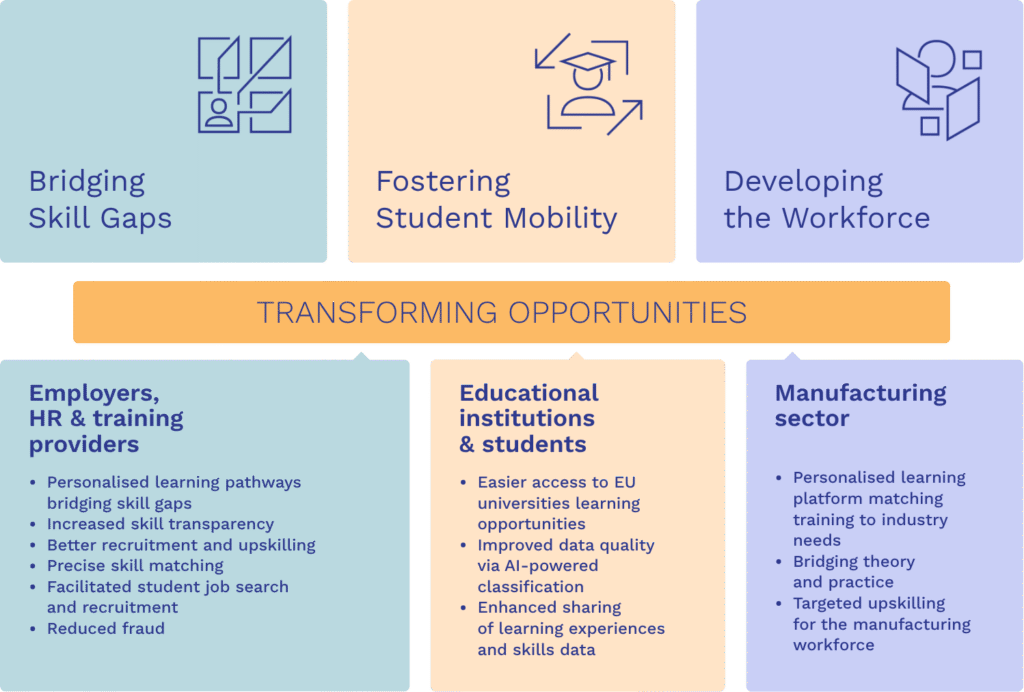Deploying the European Skills Data Space Through Eight Sustainable Use Case
Use Cases are focused on key challenges such as lifelong learning, upskilling, and employee retention, demonstrating the practical benefits of the European Skills Data Space.
Use cases main objectives

Know more about DS4SKills use cases
Supporting Student Mobility and Lifelong Learning
Improve the discoverability of learning opportunities in European university alliances. Reduce manual workload by automatically transferring learning opportunity data via the skills data space, replacing current manual methods.
Partners involved:
CSC; University of Jyväskylä; Metropolia University of Applied Sciences

Human Soft Skills Assessing Automation
Creating a tool that helps managers and employees explore their approach to this and other related skills, to prepare them for challenging organisational situations that must be addressed in an innovative and critical way.
Partners involved:
Mylia; BadgeBox


Mind the Gap: Skill-driven Strategic Workforce Learning and Development
Enable targeted personnel development, focused upskilling, recruiting, and simple matching of individuals to projects within the company.
Partners involved:
Scheer

Mind the Gap: Personalised and Job Market-Aligned Training for Future-Ready Workforce
Demonstrate enhanced alignment between workforce skills and labour market requirements. Deliver customised learning pathways. Foster continuous upskilling and career development.
Partners involved:
LIST

Connecting Personal Skills-data to the Data Space
Establish a technical connection between Athumi’s ecosystem and the EU Skills Data Space, enabling the secure and compliant sharing of relevant data with data consumers across Europe.
Partners involved:
Athumi; IMEC

Skills-driven Higher Education Institutions
Developing a data framework to provide insights into students’ experiences and skills, assess innovative learning models, and support the educational community in evaluating training effectiveness and satisfaction.
Partners involved:
UOC

Dataspace for Manufacturing Skills
Bridge the gap between theoretical knowledge and practical skills in advanced manufacturing by providing tailored learning pathways for students, employees, and job-seeking people in the sector.
Partners involved:
LMS

When Media Data Meets Education – Empowering Media Literacy
Develop AI-driven tools and user-friendly multimedia experiences, helping to critically analyse information based on trusted sources. Aiming to be connected to the Trusted European Media Dataspace.
Partners involved:
AFP; TRALALERE
